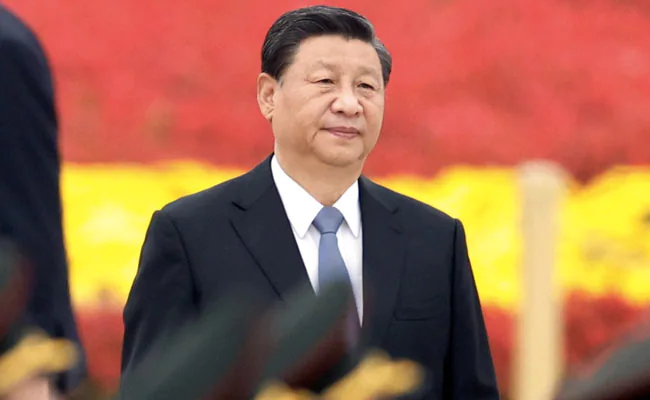[ad_1]

Beijing is hosting the meeting of the influential club of BRICS emerging economies.
Beijing:
Chinese President Xi Jinping warned against “expanding” military ties on Wednesday in a speech ahead of a virtual summit with top leaders from Russia, India, Brazil and South Africa.
Beijing is hosting the meeting of the influential club of BRICS emerging economies, which accounts for more than 40 percent of the global population and nearly a quarter of the world’s gross domestic product.
Three of its members — China, India and South Africa — have abstained from voting on a United Nations resolution condemning Russia’s invasion of Ukraine.
Xi told the BRICS business forum that the “Ukraine crisis is… a wake-up call” and warned against “expanding military alliances and seeking one’s own security at the expense of other countries’ security”.
China and India have strong military links with Russia and buy large amounts of its oil and gas.
In a call last week, Xi assured his Russian counterpart Vladimir Putin that China would support Moscow’s core interests in “sovereignty and security” — leading the United States to warn Beijing that it risked ending up “on the wrong side of history”.
South Africa, one of the few African countries wielding diplomatic influence outside the continent, has also not condemned the Russian military action.
Xi took a swipe at US and European Union sanctions on Russia in the speech on Wednesday, saying “sanctions are a boomerang and a double-edged sword”.
Leaders of the Group of Seven (G7) nations will meet next week in Germany to discuss how to proceed with sanctions against Russia.
– ‘World divided’ –
The BRICS summit takes place as Russian troops continue to pummel eastern Ukraine after invading the country four months ago.
China and India have both ramped up crude oil imports from Russia, helping to offset losses from Western nations scaling back Russian energy purchases.
India bought six times more Russian oil from March to May compared with the same period last year, while imports by China during that period tripled, data from research firm Rystad Energy shows.
Once bitter Cold War rivals, Beijing and Moscow have stepped up cooperation in recent years.
President Putin was in Beijing for the opening ceremony of the Winter Olympics in February, just days before the invasion of Ukraine started.
Beijing and Moscow also flew bomber aircraft over the Sea of Japan and East China Sea while US President Joe Biden was in Tokyo in late May — signalling strong military links between the two countries.
“The world has been divided into east and west after the Ukraine war,” Manoj Joshi, a New Delhi-based author and geopolitical commentator, told AFP.
He added that BRICS gives a platform for Putin to stand with leaders from emerging economies.
“It sends a message to the US and the EU that they have not succeeded in isolating him and Russia,” he said.
Analysts say that Beijing will use the summit to promote its governance and development model at a time of global instability.
China said at a BRICS foreign ministers meeting in May that it wants other emerging economies to join the grouping, though it is unclear whether new members have been invited.
“Beijing would like to shape the BRICS agenda in line with… China-centric initiatives,” said Madhu Bhalla, professor and editor of the India Quarterly journal.
“Entry of other members… who follow the Chinese line will help steer the group’s agenda closer to the Chinese agenda,” she said.
(Except for the headline, this story has not been edited by NDTV staff and is published from a syndicated feed.)
[ad_2]
